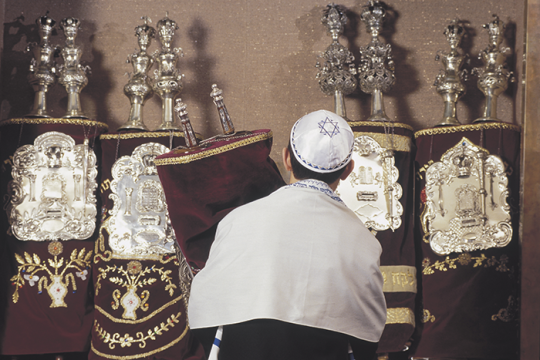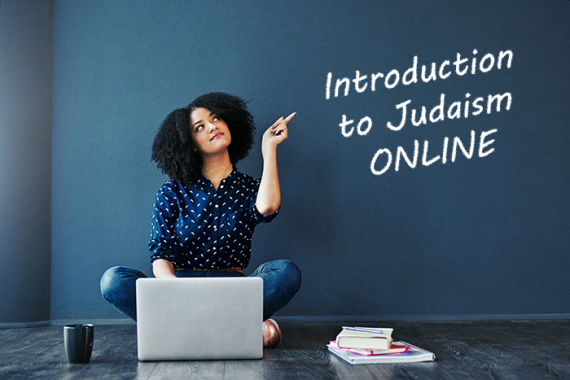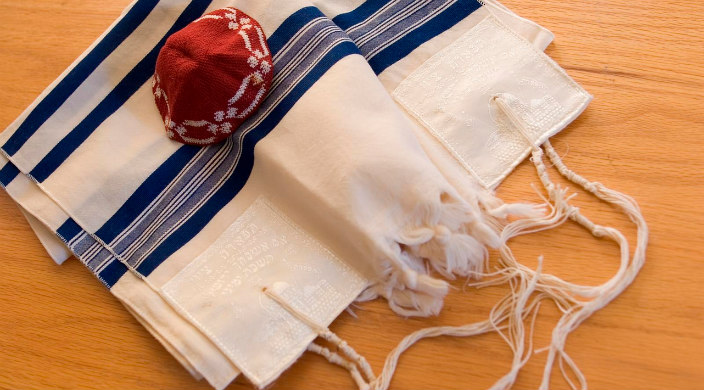
I attended a high-pressure college, and a combination of physical illness and depression nearly compelled me to drop out in my senior year. Though I was able to finish the year and graduate with good grades, I was very sick. My energy was depleted, and I lost a close but ultimately unhealthy group of friends, which left me feeling that I stood at the center of a wide, lonely space I couldn’t see out of.
Losing four years of friendship was a loss of nearly my entire identity, of the personhood I’d been trying to build in my first years away from home. Suddenly, I didn’t know who I was or where to go.
And then I heard a voice saying, Lech l’cha (Hebrew for “Go!” or “Leave!”). Actually, the voice was my friend Chana, who turned me on to Jewish stories that eventually led to a web of research on everything from the rules for cleaning Passover ovens to the history of the Yiddish language. Through Jewish learning, I recovered something I didn’t know I had lost: how it felt to be excited about something, to look forward to something.
Enthusiasm felt new and unfamiliar to my broken self, and in response to my excitement, Chana spoke in the still, small voice again, joking, “Why aren’t you converting already?”
As it turned out, there were things in Judaism and in the Jewish community that I needed. I needed community, but I needed to access that community in a structured way, to circumvent the post-traumatic fear of open interaction. For me, the easiest way to access community is through ritual and study. Fortunately, the Jewish community is full of spaces for study, and as part of it, I’ll never run out of things to learn. Torah study with a local queer group gave me a way into the queer community, too, which helped me recover that aspect of my identity; it too had been lost in the apathy of major depression.
The element of college life I missed most was the Classics Department’s Friday afternoon tea, when a lecturer gave a short talk to end the week. It was a space for community and learning, a time when I didn’t have to think about future obligations. The Classics tea was my spot of sacred time, and I found a necessary replacement for it in Friday Shabbat rituals. I needed a fixed time and space in which to be sheltered from fears about the past and the future, to reconstitute my shattered self – and Shabbat became that space.
Remembering and protecting Shabbat rest is a work of active construction. After nearly losing myself to the sense that I always had to be working my hardest in school, I understand how difficult and how necessary it is to build space for rest and healing, in order to emerge on the other side whole enough to turn my energy to repairing the world around me.
That’s another thing I found in Judaism: a framework in which to place my sense of responsibility to the world and hope for the future. Hope isn’t easy; like rest, it can feel unnatural, a struggle to maintain. I find, like Rabbi Nachman of Breslov did, that joy doesn’t come easily to me; I need to strive for it. But there is holiness in the struggle to have hope, to have joy, to feel responsibility and act on it instead of being consumed by despair. Even the small actions I take are pieces in a massive cosmic puzzle – pieces that only I hold, that only I can fit into place. Rabbi Tarfon says it is not my responsibility to finish the work; I don’t have to fix the whole world on my own – but I can’t give up on it, either.
The final thing I needed from my community was flexibility. I am transgender, and although transness is only beginning to be accepted in the broader Jewish community, events like the Union for Reform Judaism’s adoption of a resolution in support of transgender Jews help me to exist in the present and hope for the future. The millennia-long tradition of reading and rereading, interpreting and reinterpreting sacred texts, gives queer Jews a precedent on which to build interpretations that recognize our selves without feeling excluded from our people’s history.
I sometimes feel insecure as a Reform convert – but the important thing is that there is space in Judaism for uncertainty. I am not required to know what I believe, only to know how I should behave. Struggling with uncertainty, asking questions, and then questioning the questions, arguing and reinterpreting… these are all part of Jewish tradition.
If I feel I don’t know enough, at least I know what to do about that: Treat my neighbor as a reflection of the sacred, and then – go and study.
Related Posts
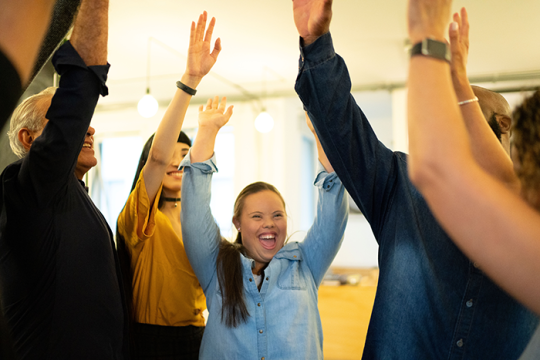
Supporting Colleagues with Disabilities
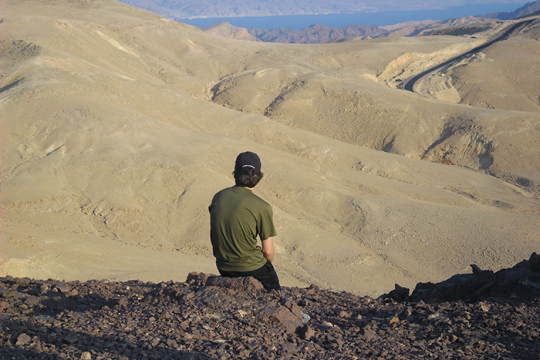
Funny, You Don’t Look...
